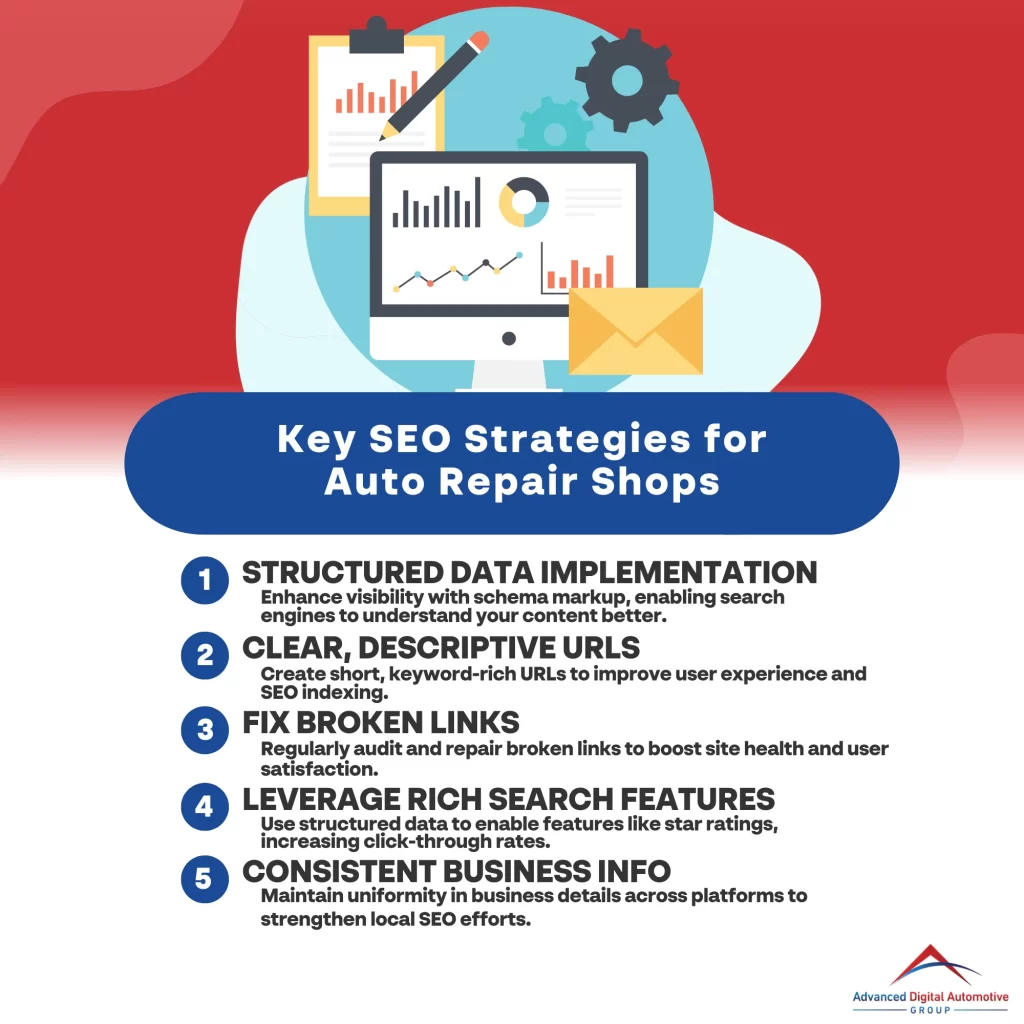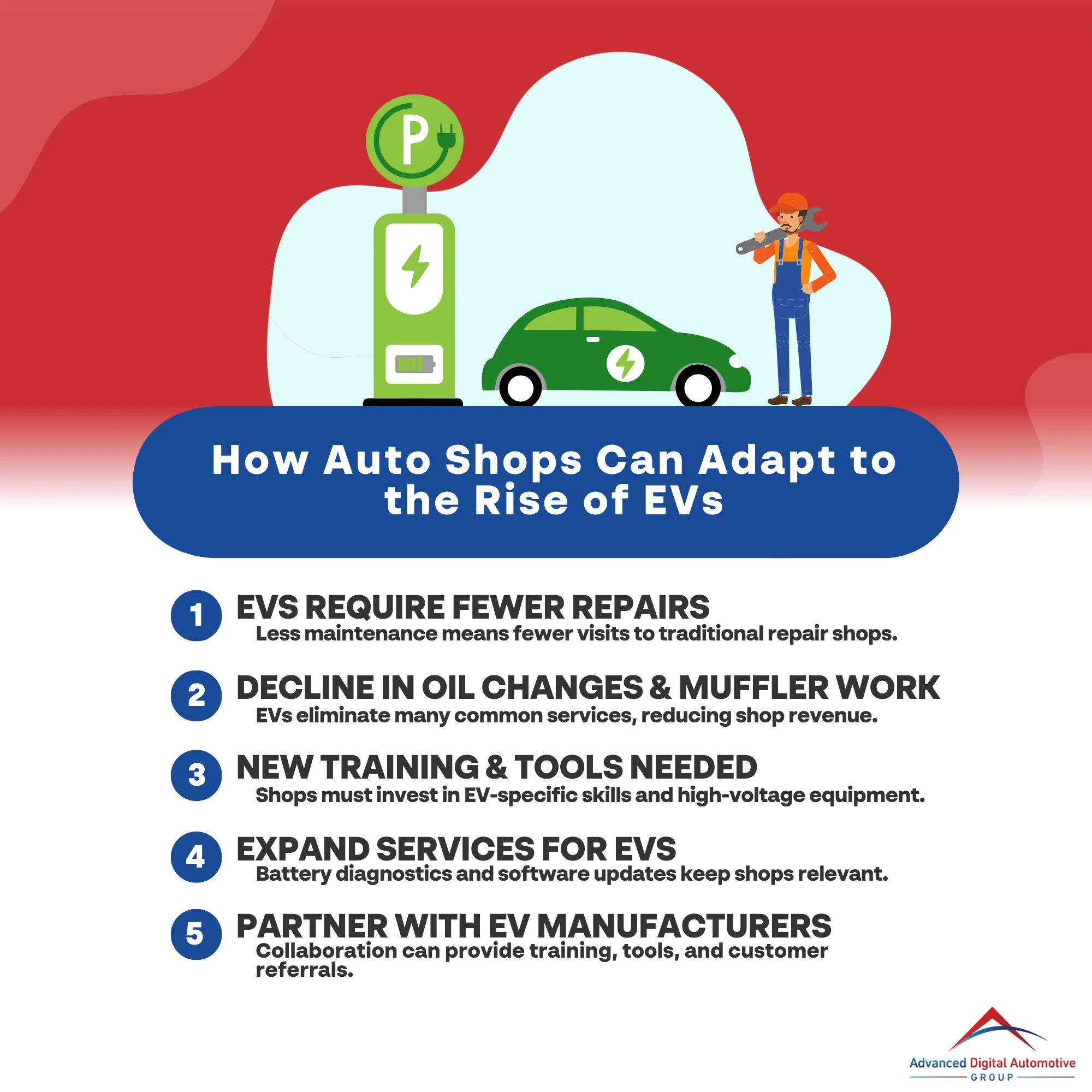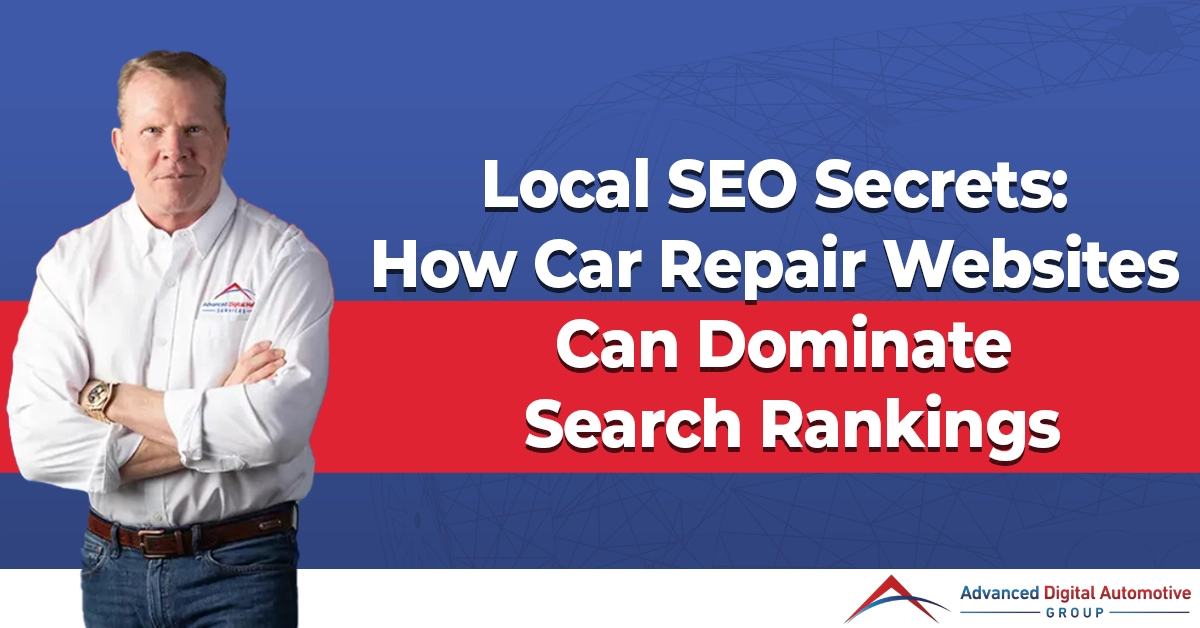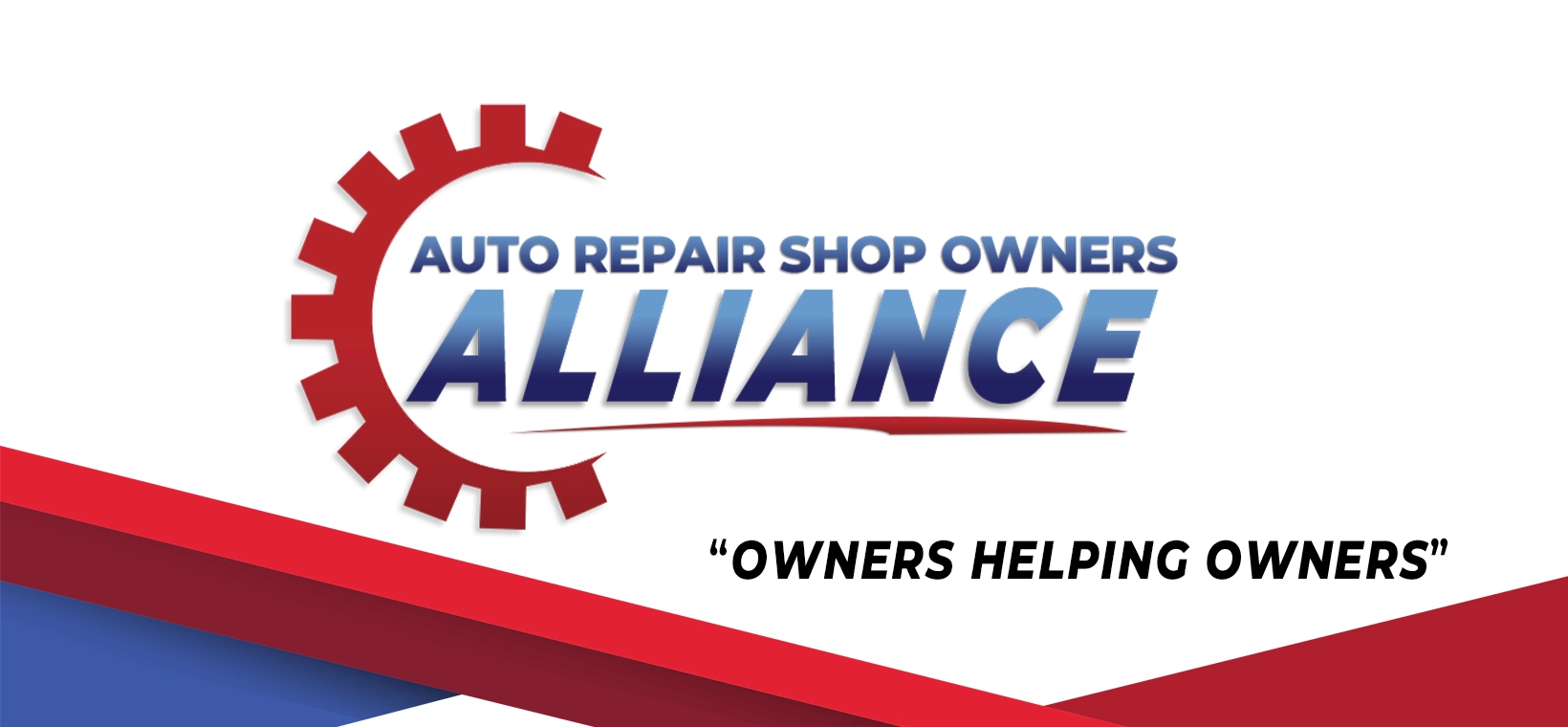To rank higher in automotive technical SEO, you need to implement structured data, enabling search engines to better understand your content and increase visibility. Utilize clear URLs with relevant keywords to improve indexing and user experience. Regularly check your site for broken links, as these can negatively impact both your rankings and user satisfaction. Leverage rich search features like star ratings to considerably boost click-through rates. Finally, guarantee consistent business information across all platforms to strengthen your local SEO efforts. By prioritizing these elements, you can optimize your strategy and achieve lasting results. Explore further insights along the way.

Key Takeaways
- Implement structured data with relevant schema markup to boost online visibility and search engine comprehension.
- Create clear, descriptive URLs that improve user experience and aid in search engine indexing.
- Regularly audit your website to identify and fix broken links, ensuring optimal website health and user satisfaction.
- Utilize rich search features to heighten visibility and increase click-through rates through rich snippets like star ratings.
- Maintain consistent business information across platforms to boost local SEO and build trust with potential customers.
Add Structured Data for Better Search Results
Structured data is a key element in increasing your automotive shop’s online visibility. By implementing structured data, you enable search engines to better understand your content, which plays a vital role in technical SEO. This markup helps search engines categorize your services, products, and business information effectively, leading to richer search results. As a result, you have a higher chance of capturing user attention and improving click-through rates.
To adhere to technical SEO best practices, you should utilize schema markup relevant to your industry. For automotive shops, this includes marking up information about your services, reviews, and location. By doing so, you’re not just optimizing for search engines; you’re also providing potential customers with valuable information at a glance.
When you apply structured data correctly, you set yourself up to rank higher in Google search results. Rich snippets, improved listings, and informative cards can emerge, all of which make your business stand out.
Ultimately, structured data is a powerful tool that contributes considerably to your overall SEO strategy, making it easier for interested customers to find and choose your automotive shop.
Make Your URLs Clear and Easy to Understand
URLs play an vital role in both user experience and SEO, and having clear, easy-to-understand URLs can significantly impact your automotive shop’s online presence.
To implement effective technical SEO tips, focus on creating URLs that reflect the content they represent. This not only assists search engines in indexing your pages but also makes it easier for users to understand where they’re heading.
Consider using descriptive keywords in your URLs, which aligns with the technical SEO meaning. For example, a URL like www.yourshop.com/oil-change-service is more informative than www.yourshop.com/page123. This clarity helps both search engines and potential customers, ultimately improving your chances to rank high in SEO.
Keep your URLs as short as possible while retaining relevant keywords. Avoid unnecessary parameters and numbers that can confuse users.
Using hyphens to separate words also improves readability, making the URLs more user-friendly.
Fix Errors and Broken Links to Keep Your Site Healthy
Maintaining your website’s health is crucial for effective technical SEO, and fixing errors and broken links is a key component of that process. Regularly performing a technical SEO audit checklist allows you to identify and address these issues proactively.
Broken links not only frustrate users but also hinder your ability to rank higher in Google search results, as search engines interpret them as signs of neglect.
Utilizing technical SEO tools can streamline this process. Tools like Screaming Frog or Ahrefs can help you crawl your site, pinpoint broken links, and detect errors such as 404 pages or server issues.
Once identified, you should prioritize fixing these problems—either by updating links, redirecting them, or removing them altogether.
Moreover, verify that internal links are functioning correctly since they contribute to site navigation and user experience. Keeping your website free of errors and broken links not only increases user satisfaction but also improves your site’s overall authority and visibility.
Regular maintenance will support your long-term SEO strategy, guaranteeing you consistently attract and retain visitors.
Use Structured Data for Rich Search Features (e.g., star ratings)
Incorporating structured data into your website can remarkably improve your visibility in search engine results by enabling rich search features like star ratings. This implementation is vital as it directly influences technical SEO ranking factors recognized by search engines. By using structured data markup, you provide search engines with clear information about your content, which can lead to better indexing and improved visibility in search results.
When you implement schema markup, you’re not just following a trend; you’re engaging in an integral aspect of SEO technical optimization. Google SEO ranking factors favor websites that utilize structured data, as it helps them display relevant information efficiently. Rich snippets, such as star ratings, can meaningfully increase your click-through rates, setting your website apart from competitors.
Search engines often display these rich features prominently, giving your site an edge in visibility and credibility. As you focus on structured data, remember that consistent updates and monitoring are vital to maintaining effectiveness.
Keep Your Business Info Consistent Across the Web for Local SEO
Ensuring your business information is consistent across the web is essential for effective local SEO. Discrepancies in your name, address, or phone number can confuse search engines, leading to poor local search optimization.
A technical SEO specialist can help you audit your online presence, ensuring that all listings—like Google Business Profile, Yelp, and social media—reflect the same accurate information.
Inconsistent data can even impact your search rankings, as search engines prioritize reliable sources. Consequently, you should regularly review your listings and update them as necessary.
When considering how many SEO keywords should I use, focus on relevant, location-based keywords that align with your services. This not only improves visibility but also solidifies your authority in the automotive sector.
Consistent business information also promotes trust among potential customers, making them more likely to choose your services.
By maintaining uniformity across platforms, you maximize your chances of appearing in local search results, driving more traffic to your shop.
Frequently Asked Questions
How Does Mobile Optimization Impact Automotive SEO Rankings?
Mobile optimization greatly impacts your SEO rankings by ensuring your website loads quickly and displays correctly on devices. Google prioritizes mobile-friendly sites, improving user experience and increasing your chances of attracting more local customers effectively.
What Role Do Backlinks Play in Automotive Website Authority?
Think of backlinks as bridges; they connect your website to reputable sources, strengthening your authority. When high-quality sites link to you, search engines recognize your credibility, boosting your rankings and attracting more targeted traffic.
How Often Should I Update My Website Content for SEO?
You should update your website content regularly, ideally every few weeks. Fresh, relevant content signals search engines to crawl your site more often, improving your SEO performance and keeping your audience engaged with current information.
What Are Common SEO Mistakes to Avoid for Auto Repair Shops?
Avoid neglecting local SEO, overlooking mobile optimization, and ignoring online reviews. Instead, focus on genuine engagement and quality content to truly stand out.
How Can Social Media Influence My Automotive SEO Efforts?
Social media amplifies your automotive SEO by driving traffic to your site, improving brand visibility, and engaging customers. It heightens your online reputation, promotes trust, and generates valuable backlinks, boosting your overall search engine rankings.
Conclusion
In today’s hyper-competitive digital world, mastering automotive technical SEO isn’t just beneficial—it’s absolutely crucial for survival! By implementing structured data, optimizing URLs, and fixing errors, you’re not just improving your site’s health; you’re catapulting your shop to the top of search results! Don’t underestimate the power of consistent business information; it’s the lifeline that connects you with local customers. Embrace these strategies, and watch your online visibility soar to astronomical heights!









